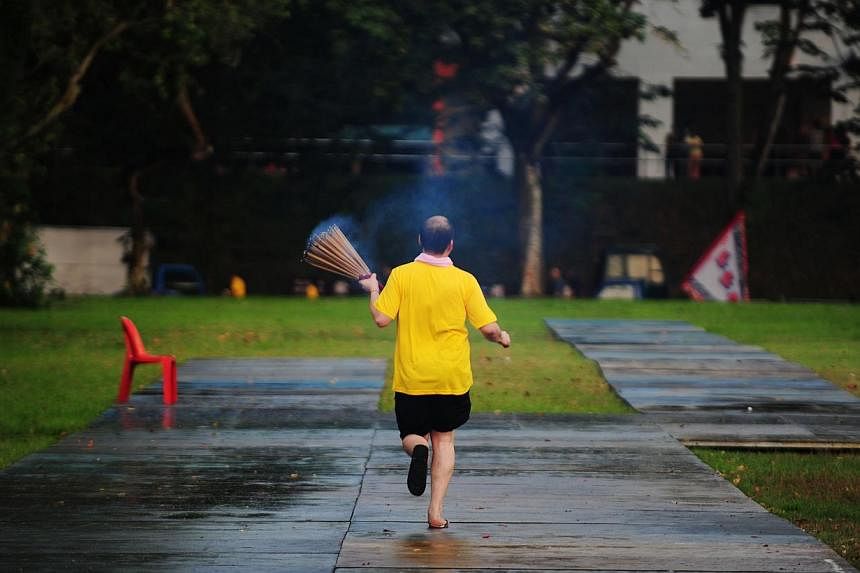The faint smell of burning incense was a constant in her home when Madam Karen Chua was growing up.
Forty years on, the part-time teacher, 49, follows her mother's example and lights up three joss sticks each morning to pray for a smooth day ahead and for the well-being of her two children.
However, long-term daily exposure to incense smoke is a health hazard, a study of over 63,000 people here has found.
Inhaling smoke from burning incense daily for 20 years or more increases a person's risk of dying from heart disease by 12 per cent, according to the research, although it could not pinpoint exactly how much intake would be harmful.
Associate Professor Koh Woon Puay of the National University of Singapore (NUS), who led the effort together with NUS Assistant Professor Pan An, said the health effects are similar to those suffered by passive smokers.
The 12 per cent increase in risk might not seem like much, noted Prof Koh, considering that smokers increase their risk by 100 per cent or more.
"But in populations with a high prevalence of indoor incense use, this factor could contribute considerably to the risk of cardiovascular death at the population level," she said.
Her previous work also highlighted that daily incense use was linked to an increased risk of upper respiratory tract cancer.
The latest finding, published in the journal Environmental Health Perspectives last month, comes from the Singapore Chinese Health Study, which was started in 1993.
Participants were aged 45 to 74 when they joined the study. Follow-ups were carried out for 15 years on average.
Indoor incense burning is widespread throughout the region, but few studies have looked at its impact on health.
Prof Koh said laboratory and animal research has found that long-term exposure could cause metabolic changes that might increase inflammation in blood vessels and affect blood flow.
"Studies on emissions from burning of incense have identified volatile organic compounds and particulate matter similar to those found in cigarette smoke and traffic emissions," she added.
However, she stressed that the work is not intended to discourage incense burning, which is often linked to religious and ritual practices.
Instead, she hopes it will spur future efforts to identify the least harmful types of incense, as well as strategies to improve indoor air quality.
Taoist priest Chung Kwang Tong, 29, explained that for Taoists, incense smoke is a way to purify the home and communicate with deities.
Some devotees might mistakenly believe that burning more incense is a show of greater sincerity, he said.
"It is not a case of the more the merrier - one stick of incense in the morning and one in the night would be enough," added Master Chung, who is secretary-general of the Taoist Federation Youth Group.
Madam Chua may change her habits.
"I could be okay with going to the temple to do my prayers," she said.

